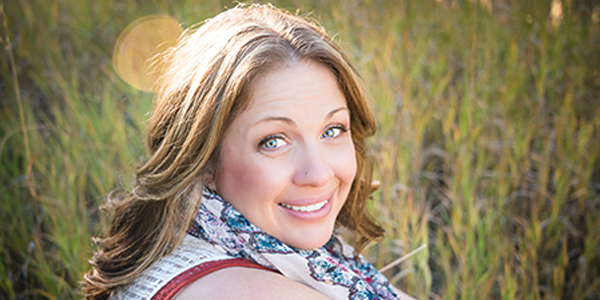Christian graphic designer fights state forcing her to promote LGBT weddings
September 29,2017


If a Christian graphic designer in Colorado objects to promoting the same-sex marriage of “Stewart” and “Mike” because it violates her religious beliefs, that’s just too bad, a federal judge has ruled.
Lorie Smith, who runs the studio 303 Creative, challenged Colorado’s Anti-Discrimination Act. Smith filed a lawsuit, 303 Creative v. Elenis, in the U.S. District Court for the District of Colorado in 2016. The law requires her to violate her Christian beliefs in marriage as a relationship between a man and a woman and create websites celebrating and promoting same-sex marriages.
Smith’s lawsuit is a “pre-enforcement challenge,” which lets citizens challenge laws that restrict their rights before the government enforces the laws against them.
On Sept. 1, a federal judge issued a ruling refusing to temporarily halt the law. He also put Smith’s legal challenge on hold until the U.S. Supreme Court rules in a separate religious liberty case, Masterpiece Cakeshop v. Colorado Civil Rights Commission. Now Smith is appealing the judge’s decision.
The trouble for Smith began when a couple identifying as “Stewart” and “Mike” requested services from 303 Creative, which specializes in website design, graphics, events planning and marketing.
“A federal judge ruled that Smith and her studio can’t sue to challenge a portion of Colorado’s Anti-Discrimination Act because a request sent to Smith by the couple, self-identified as ‘Stewart’ and ‘Mike,’ isn’t formal enough to prove that a same-sex couple has asked her to help them celebrate their wedding,” explained the Alliance Defending Freedom, which is representing Smith and also the Masterpiece Cakeshop case. “The Colorado Civil Rights Commission has construed the law to force artists like Smith to create objectionable art even though Smith happily serves everyone and decides what art to create based on the art’s message – not the personal characteristics of the prospective client.”
The Colorado law also bans Smith from publishing any religious statements about biblical marriage that “indicate,” “directly or indirectly,” that any request for Smith to promote a same-sex marriage would be “unwelcome, objectionable, or undesirable.”
On her website, Smith explains:
As a Christian who believes that God gave me the creative gifts that are expressed through this business, I have always strived to honor Him in how I operate it. My primary objective is to design and create expressive content – script, graphics, websites, and other creative content – to convey the most compelling and effective message I can to promote my client’s purposes, goals, services, products, events, causes, or values. Because of my faith, however, I am selective about the messages that I create or promote – while I will serve anyone I am always careful to avoid communicating ideas or messages, or promoting events, products, services, or organizations, that are inconsistent with my religious beliefs.
Alliance Defending Freedom senior counsel Jonathan Scruggs said Christians should never “be threatened with punishment for disagreeing with the government.”
“The government must allow artists like Lorie the freedom to make their own decisions about which messages they will promote,” Scruggs argued. “Lorie is happy to design custom art for all people; she simply objects to being forced to pour her heart, imagination, and talents into messages that violate her conscience. Because the court’s ruling allows the government to violate Lorie’s freedom to make these personal decisions, she is appealing.”
ADF legal counsel Kate Anderson added: “Creative professionals should be free to peacefully live and work according to their faith without fear of coercion, discrimination, or intimidation by the state. Just because a multimedia artist creates expression that communicates one viewpoint doesn’t mean Colorado can require her to express all viewpoints. Lorie should be allowed to proceed with her full legal challenge because it’s unlawful for the government to force an artist to create art against her will just because of her deeply held beliefs.”
WND has reported extensively on the separate Masterpiece Cakeshop case. Colorado baker Jack Phillips was ordered by the state’s Civil Rights Commission to provide his customized wedding cakes to same-sex duos if he provided them to anyone. He also was forced to undergo state-mandated, homosexual-rights thought training, along with his staff.A member of the state’s Civil Rights Commission, Diann Rice, publicly exhibited bias against him during a hearing, comparing him to a Nazi.
“I would also like to reiterate what we said in the hearing or the last meeting,” Rice said during consideration of Phillips’ case. “Freedom of religion and religion has been used to justify all kinds of discrimination throughout history, whether it be slavery, whether it be the Holocaust, whether it be – I mean, we – we can list hundreds of situations where freedom of religion has been used to justify discrimination. And to me it is one of the most despicable pieces of rhetoric that people can use to – to use their religion to hurt others.”
ADF has posted a list of the briefs, as well as links to the court documentation.
ADF’s first briefing pointed out the antagonism religious believers face in Colorado.
“A review of all these situations reveals something striking: People of faith who do not support same-sex marriage always lose (in Colorado),” the legal team explained. “Whether they are the customer requesting an expressive item or the professional declining to create it, the commission consistently opposes them.
“This unequal application of the law impermissibly ‘single[s] out’ a specific religious belief ‘for discriminatory treatment,'” the brief states.
The lawyers explained that Phillips’ right to decline to promote homosexuality is protected by the First Amendment’s Free Speech and Free Exercise clauses.
“At issue here is whether Phillips may decline requests for wedding cakes that celebrate marriages in conflict with his religious beliefs. The First Amendment guarantees him that freedom because his wedding cakes, each one custom-made, are his artistic expression.
“Much like an artist sketching on canvas or a sculptor using clay, Phillips meticulously crafts each wedding cake through hours of sketching, sculpting, and hand-painting. The cake, which serves as the iconic centerpiece of the marriage celebration, announces through Phillips’s voice that a marriage has occurred and should be celebrated.
“The government can no more force Phillips to speak those messages with his lips than to express them through his art.”
CONTACT:
(434) 237-8201
P.O. Box 606
Forest, VA 24551
